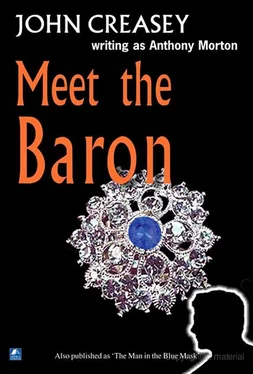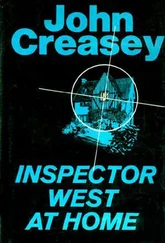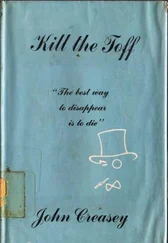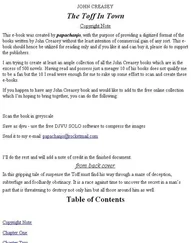He was thinking, as he looked into her face, of the things she had said and done in the last few months — since the day when they had first met and she had appealed to him as “different”. He remembered her reputation; he knew that no men had interested her, that Fauntley had despaired of her ever marrying. Then he reminded himself of the hopelessness that had shone from her eyes sometimes, of the fits of depression she had, even though she had managed to lose them when they had been together. He recalled the time when he had discovered that she wanted money badly, yet dared not approach her father.
And now she said, “I’d give half my life to, John, but I can’t. ”
It could mean only one thing, he knew, and now he felt that he had suspected it for a long time. He spoke at last, slowly, smiling, and giving her a confidence enough to repress the tears that were so close to the surface.
“So — you’re married?”
Lorna nodded, and said nothing. What could she say?
“And you’re paying — him — money to keep the marriage secret ?”
She nodded again, but spoke this time.
“Yes.” Her voice was very low, but he heard every word clearly. “I’ve been married for a long time. Oh, it seems a century ago! He went away soon afterwards, and we agreed to keep it a secret until he returned . . . God, what a fool I was!”
“Steady,” murmured Mannering, and his pressure on her hands increased.
“Thanks,” she said, and a smile flashed in her eyes, to disappear swiftly. “I don’t know what the past year would have been like without you, John. He came back just after I’d met you. He wanted money, and he was prepared to keep silent if I gave it to him. So” — she shrugged her shoulders, and her smile was gone now; she looked tragic, he told himself, but more beautiful than he had ever seen her — “I did all I could. That’s why I tried to take the Overndon necklace . . .”
Mannering had told himself a few minutes before that he knew all there was to know. Now, as her words came out slowly, they took several seconds to impress themselves on his mind. She had tried to take the Overndon necklace!
“Good God!” he gasped. “At the wedding — so the dummy pearls were yours! ”
“Yes,” she said steadily; her gaze did not move. “I even bought the dummy pearls to match the real ones as near as I could. I’d been with Emma to buy them in the first place, and I knew what they were like. But when I was there my nerves went. I slipped the dummies into Gerry’s pocket never dreaming there would be any trouble. . . .”
She broke off, and there was silence for a few minutes, Mannering was trying to get this new fact out of his mind; it was amazing enough, but it didn’t matter now. True, it cleared up the mystery of the dummies, but everything other than the fact of Lorna’s marriage was unimportant.
“It’s all right,” he said at last. “Nothing happened that wasn’t soon put right. But. . .”
She flung her head back and ran her fingers through her hair.
“The marriage can’t be put right,” she said. “Oh, I could let it be known; I could get a divorce. But it would break Dad — he’s so scared of scandal. Mother too. Somehow I don’t think I could find the courage to — to let it come out.”
“You’d rather pay him — and have your life a misery,” said Mannering, but there was no sting in his words, and his voice strengthened suddenly. “We’ll find a way out, my dear. We must find one. A year or two won’t matter, while we’re waiting; and meanwhile we can work.”
Lorna smiled; her eyes held real humour, and he marvelled at the way she could forget the thing that must have made her wish, often enough, that she was dead.
“The Baron can work,” she said, and they laughed together.
THE END












